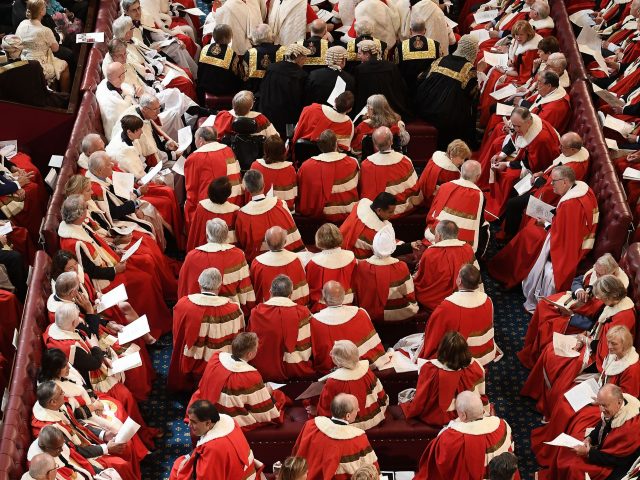
Campaigners have criticised “couch potato peers” after new research suggested more than 100 claimed almost £1.3 million despite not speaking in the House of Lords for a year.
The Electoral Reform Society (ERS) said 115 peers – approximately one in seven – did not contribute in a debate during the 2016/17 parliamentary session but claimed an average of £11,091.06 each, according to analysis of voting, speaking and expenses records for the Lords.
The independent campaign group’s findings also suggest £4,086,764 was claimed by the 36% of peers (277 peers) who spoke five times or fewer in the past year.
The next big expenses scandal https://t.co/a6bK09FpW4
— Electoral Reform Soc (@electoralreform) September 19, 2017
While some are calling for piecemeal changes to the Lords, the scale of the scandal shows there's a need for root-and-branch reform
— Electoral Reform Soc (@electoralreform) September 19, 2017
The ERS-interpreted data also found £7,321,274 was claimed by 394 peers who spoke 10 times or fewer this past year, while 131 peers spoke and voted 10 times or fewer, claiming £658,314 in 2016/17.
The most active 300 peers claimed only half the expenses, “showing the size of the Lords can be cut without significantly limiting its work”, according to the ERS.
ERS chief executive Darren Hughes said the data appeared to show a growing “something for nothing” culture.
Labour former minister David Hanson added many peers are “lobby fodder” as he renewed calls for the Lords to be reformed, starting with the removal of hereditary peers. But a House of Lords spokesman said the ERS calculations were “undermined by their narrow focus on spoken contributions”.
 (Carl Court/PA)
(Carl Court/PA)
Mr Hughes said: “These figures are a damning indictment of the state of the House of Lords. There appears to be a growing ‘something for nothing’ culture in our upper house, with tidy sums being claimed by those who barely contribute.
“And there are a worrying number of couch potato peers and lobby fodder Lords at a time when there is plenty to scrutinise, ostensibly the upper chamber’s role.”
Mr Hanson, MP for Delyn, told the Press Association: “I have been pushing for the Government to remove the hereditary peers once and for all. It is plainly wrong that an individual is given the right to pass and amend laws and question the Government in parliament by accident of birth.”
ERS said its methodology remained the same as a similar 2015 study, in which brief interventions, written questions and answers, or attendance in committees by peers, were not taken into consideration when assessing the work done in return for a flat-rate attendance allowance of up to £300 for each sitting day.
A House of Lords spokesman said: “The Electoral Reform Society’s calculations are undermined by their narrow focus on spoken contributions.
“Speaking in the chamber is only one of the ways members hold the Government to account and this research ignores members’ contributions including amending legislation, asking the Government written questions and serving on select committees – more than 320 members served on committees in the last session of Parliament – as well as parliamentary work away from the chamber.”
The ERS said it had chosen not to release the names of the peers who claimed expenses or allowances but had not spoken in the Lords chamber, as its aim was “not to name and shame – it’s to show the problem is systemic”.


Comments & Moderation
Readers’ comments: You are personally liable for the content of any comments you upload to this website, so please act responsibly. We do not pre-moderate or monitor readers’ comments appearing on our websites, but we do post-moderate in response to complaints we receive or otherwise when a potential problem comes to our attention. You can make a complaint by using the ‘report this post’ link . We may then apply our discretion under the user terms to amend or delete comments.
Post moderation is undertaken full-time 9am-6pm on weekdays, and on a part-time basis outwith those hours.
Read the rules hereLast Updated:
Report this comment Cancel